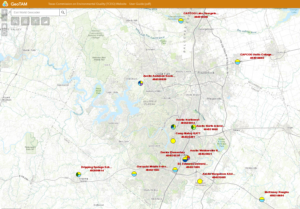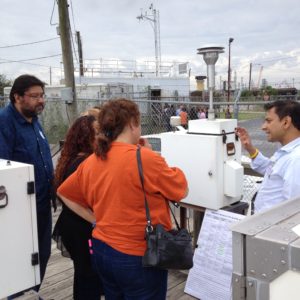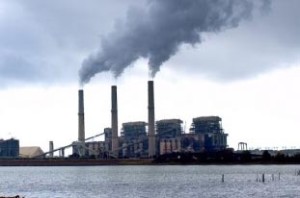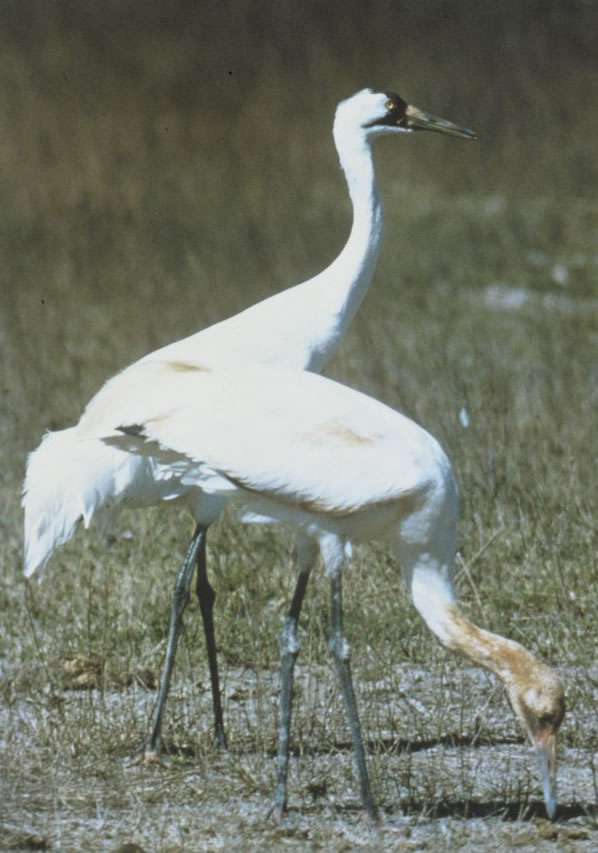By Michael Tahmoressi, St. Edwards student and Public Citizen intern
Texas can be characterized as a pay to play environment. Politicians bend to their districts business interests and gubernatorial appointees seem to be selected based on the amounts they contribute to the governor.
Contributions Equal Access and Appointments
Rick Perry has taken this to a new extreme with the deal he appears to have struck with Harold Simmons, a billionaire chemical industry mogul whose latest project is a radioactive waste repository in Andrews county Texas. Simmons single handedly pushed his project forward, boasting about it in a rare interview in 2006. Click here to read D Magazine’s article “Harold Simmons is Dallas’ Most Evil Genius.
State engineers and geologists strongly objected to licensing the dump, expressing concern that radioactive material could contaminate groundwater in the region. Three staff scientists at the Texas Commission on Environmental Quality resigned rather than sign off on the licenses. Nevertheless, Rick Perry spearheaded the approval of the waste dump, operated by Waste Control Specialists (WCS) and the TCEQ executive director, Glenn Shankle, approved the application, just a few months before he went to work as a lobbyist for WCS. Click here to read Public Citizen’s report The Repository and the Risk.
The next step of the plan was to open the facility up to allow other states to dump their waste in the site. That decision lay in the hands of the Texas Low-Level Radioactive Waste Disposal Compact Commission (TLLRWDCC), comprised of six Texas commissioners appointed by Perry. Two additional commissioners appointed by Vermont fill out the Compact Commission. In 2010, eleven days after Governor Perry was re-elected, the Compact Commission voted 5-2 to approve rules that would make Texas the radioactive waste disposal site for the country.
The Texas Sunset Advisory Commission flagged this potentially huge liability problem in its report on the Texas Commission on Environmental Quality:
“Texas, and not the Compact Commission nor the disposal facility licensee, holds liability for compact waste brought into the state. Low-level radioactive waste can be radioactive for a long time, and potential future contamination could not only have a severe impact to the environment and human health, but to the State, which bears the ultimate financial responsibility for compact waste disposal facility site.”
A Texas observer article goes on to explain that the state would not only be forced to take care of any potential contamination problems but also the closure of the waste dump. This is clearly illustrates the biggest problem in our state the power does not lie in the hands of the people but in the business sector. Click here to read the article from the Texas Observer.
Double Dipping: An Acceptable Practice?
The case of State Represenative Joe Driver, (R-Garland) is another example. Driver, who was convicted of felony abuse of official power, admitted in an interview in 2006 that he pocketed taxpayer money for travel expenses that his campaign had already paid. Click here to read the Texas Tribune article. For years he had been double dipping, submitting the same receipts to his campaign and the state for airline tickets, meals, incidentals; collecting thousands of dollars in state mileage reimbursements for travel in vehicles for which his campaign had already spent more than $100,000 since 2000. This resulted in his campaign covering these travel costs, while he pocketed the profit by reimbursing himself with taxpayer money.
The Attorney general has not done enough to stop criminals like Driver. Abbott’s ethics probes have been terribly inadequate. Of the 57 probes he has started since his term in office began in 2002 only half of those resulted in convictions and a majority of those were for only minor infractions.
Abbott is a power broker with a political war-chest of over 8 million dollars. Ninety nine percent of that can be traced back to business interests, more than $1 million from the business sector with the top contributors Houston homebuilder Bob Perry who gave the attorney general $470,265 in addition to Houston’s John Nau, Kenny Troutt, who made a fortune from his Excel phone company and energy and water investor T. Boone Pickens following close behind.
Texans need a justice agency they can trust to stop this hijacking of our democracy politicians that are either being rented by big business lobbies or are trying to get a cut of the action.
It Was A Gift, Not a Contribution
Legislative power broking has become normal practice in Texas. Lobbyists’ daily activities in the capital involve massaging the backs of legislative members and their staff with gifts of food and activities, and functional bribes, in the form of monetary campaign promises or the problem State Representative Kino Flores (D-Palmview) in the valley encountered.
Flores had been receiving money from local businesses for years and not properly filing required reports on them. He was indicted for accepting gifts and failure to report them to the state. Overall, he failed to disclose $115,000 to $185,000 of income each year from 2004 to 2009.
Blatant corruption taints our democracy, how can citizens believe in their governments officials to manage the state, when the balance of power has gradually shifted to the moneyed elite. The general population is so removed from policy implementation they usually only show interest in issues that directly affect them; making it appear that they are okay with a level corruption when the reality is that they are unaware of the corruption or feel powerless to do anything about it. This is inherent to our economic system that demands efficiency and results at the expense of ethics.
Politicians for Sale or Rent, Rooms to Let – 50 Cents
Politicians aren’t for sale in Texas, they are for rent. There was a study done by Larry Bartels professor at the Woodrow Wilson School of Government about economic inequality and congressional response. Bartels found that senators are more likely to respond to concerns brought forward by members of the top ⅓ of their district’s total constituency. Bartels also found that senators never voted or responded to the concerns of the lower economic ⅓. Click here to read the report.
If the game is rigged towards the top ⅓ of our population because money buys influence, what are the rest of us supposed to do to get our voices heard?
Tom “Smitty” Smith of Public Citizen and 15 other advocates from legislative watchdog groups had an answer. On April 10th, testifying in front of the Texas Sunset Advisory Committee they urged the committee to make the Texas Ethics Commission (TEC) an enforcement agency and to expand their authority to investigate beyond minor infractions. In addition, they recommended that a TEC enforcement director be given greater authority to subpoena records, that the legislature expands what is disclosed by candidates each election cycle and that they create a limit on the amount that individuals can contribute.
Public watchdogs speaking out against corruption at the TEC Sunset hearing is tantamount to sustaining what is left of our democracy in Texas. It’s impossible to place personal responsibility on the people for not participating in rooting out corruption because the power is not in their hands and the very folks responsible for representing them are being bought by big business groups.
Public Citizen and other watchdog groups are the vanguard of citizens who are committed to accountability. We hold those in the government, who believe their positions put them above the law, accountable and demand that there be a reverse in the flow of power back to the people. Public hearings like the one on April 10th allow us the ability to present our grievances.
The system may be sluggish and cumbersome, but Public Citizen is committed to maintaining and expanding a network of allies who are committed to holding Texas government officials accountable for the misuse and abuses of power.
Read Full Post »








